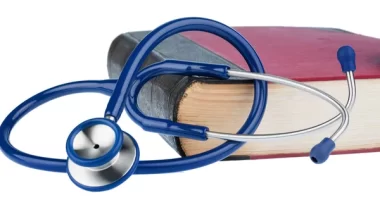
High cholesterol is most often the result of an unhealthy lifestyle, but one’s genes can also play a role. If your blood contains too much LDL cholesterol (cholesterol carried by low-density lipoprotein), it’s known as high cholesterol. When left untreated, high cholesterol can lead to many health problems including heart attack or stroke. A person’s external body can hold many clues to their health and risks including the warning signs of high cholesterol.
Pain in hands
When there is an accumulation of plaque (fatty deposits) it clogs the arteries, which is called atherosclerosis.
These deposits are made up of cholesterol, fatty substances, cellular waste products, calcium and fibrin.
As the cholesterol in the body builds up, it can clog the blood vessels of the hands.
This build-up of cholesterol can occur continuously and make the hands painful.
Growths on skin
If you see yellowish-orange growths on your skin, you may have deposits of cholesterol under your skin.
These painless deposits can appear in many areas, including the corners of your eyes, lines on your palms, or the backs of your lower legs.
If you notice these growths on any area of your skin, see your doctor.
Blue ring in eyes
One ocular sign of high cholesterol is a bluish ring that forms near the outside of the cornea, the otherwise clear, front part of the eye.
These rings, called “arcus senilis,” appear most commonly with age as more cholesterol gets deposited into the cornea.
Arcus senilis is generally harmless, although it can sometimes be a sign of high cholesterol in people under 45 years of age.
LDL vs HDL
Low-density lipoprotein (LDL) is often called “bad cholesterol.”
It carries cholesterol to your arteries. If your levels of LDL cholesterol are too high, it can build up on the walls of your arteries.
The build-up is also known as cholesterol plaque.
This plaque can narrow your arteries, limit your blood flow, and raise your risk of blood clots.
If a blood clot blocks an artery in your heart or brain, it can cause a heart attack or stroke.
High-density lipoprotein (HDL) is sometimes called “good cholesterol.”
It helps return LDL cholesterol to your liver to be removed from your body.
This helps prevent cholesterol plaque from building up in your arteries.
When you have healthy levels of HDL cholesterol, it can help lower your risk of blood clots, heart disease, and stroke.
Post source Daily Express






